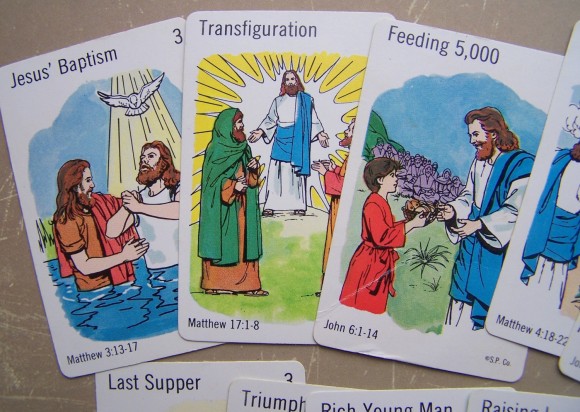If Jesus had a Facebook page, which picture would he use for his profile? Would it be gentle Jesus, meek and mild with a baby lamb on his shoulders? Would it be Jesus laughing as the little children bounded into his arms? Would it be Jesus feeding the 5,000? Would it be the righteously angry Jesus driving the moneychangers out of the temple? Would it be Jesus reclining at the Last Supper with his beloved disciple John resting against him? I’m guessing, like us, he would change his profile picture from time to time to reflect the status of his life.
Today as we begin the book of Revelation, we see another picture of Jesus. It’s actually the most detailed, physical description of him in the bible. It’s a very symbolic picture that’s filled with meaning and designed to reveal him as he is now in his glory. In this picture, he no longer suffers. We see none of the lowliness that marked his life on the earth. And while he is still humble of heart, this picture is of Jesus the strong, majestic, powerful, royal and exalted Lord of all.
The apostle John, while imprisoned on the island of Patmos, received this revelation of Jesus one Sunday while he was worshiping in the Spirit (Rev 1:10-17). John first heard a voice behind him that sounded like a trumpet blaring in power and declaration. As he turned to see who it was that was speaking to him, he saw the “Son of Man.” This was the title Jesus had always given himself (taken from the prophet Daniel; see Daniel 7:13). While John clearly saw a man, the man he saw was more than simply human. He was the Son of Man who is also the Son of God. Everything about him symbolized majesty and judgment. And it is this reality about Jesus; that he is King and Judge, that fills the book of Revelation. It’s this picture of him, who he is in his eternal glory, that closes out the bible.
As John looked, he saw Jesus dressed in a robe reaching down to his feet — flowing robes symbolized dignity and honor. Across his chest was a golden sash. The combination of these two items declares his high priestly duties before God on behalf of people. His head and hair were white like wool — he is the the Ancient of Days completely pure and wise. His eyes were like blazing fire — he sees and knows all and brings hidden things to light. His feet were like bronze glowing in a furnace — brass symbolized judgment. His voice was like the sound of rushing waters — power and majesty are his and he speaks creation into being with the song he sings. What a juxtaposition. Creation birthed through music.
In his right hand were seven stars — he holds the church, its people, and all of creation together and in his care. From his mouth came a sharp, double-edged sword — his word pierces, divides and separates all that it contacts. His face was like the sun shining in its brilliance– Oh the wonder of who he really is! He is the all-glorious God, the Living One, who overcame death and is alive forevermore!
When John, “the disciple whom Jesus loved” saw Jesus in his majesty, “he fell at his feet as though dead,” (1:17). But the Lord touched him and said, “Don’t be afraid!” John, who knew Jesus as intimately and closely as anyone on earth, was overwhelmed as if dead when he saw Jesus in his majesty. And yet, Jesus in his kindness, did not want his beloved John to be afraid of him. The message is clear. There’s so much more to Jesus than just one scene of his life. He is more than a wise teacher. He is more than a great prophet. He is not one among many religious leaders. He is God Almighty himself, the King and Judge, before whom everyone of us will stand in jaw-dropping awe and worship one day. And yet, he is kind and wonderful to all who come to him. He doesn’t want us destroyed and overwhelmed by who he is. He is absolutely for us.
Have you experienced this Jesus? Do you know him as he really is?









